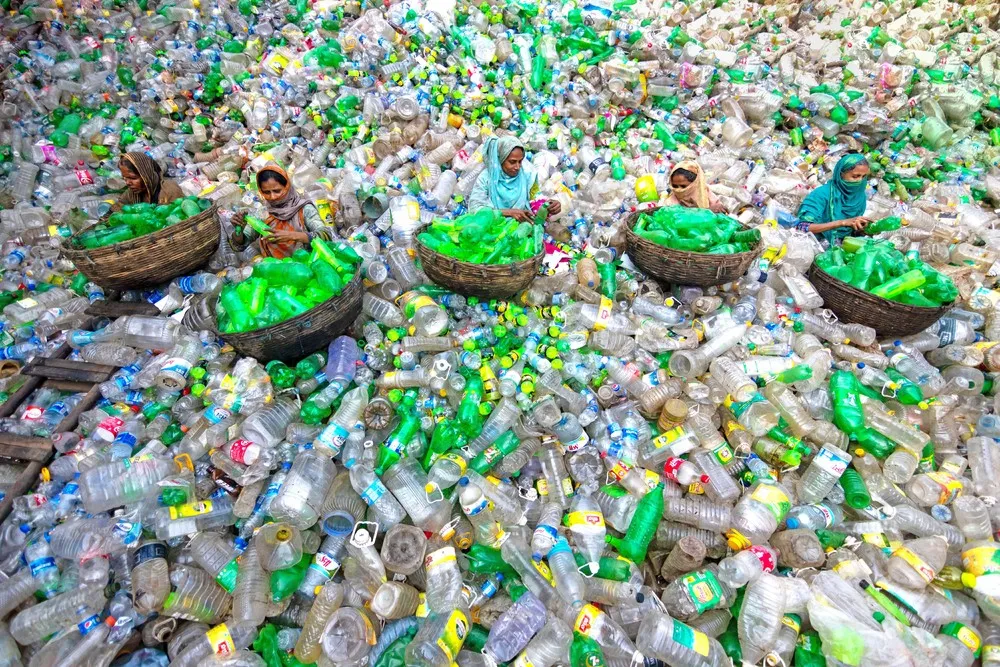|
Workers sort used plastic bottles at a recycling factory in Dhaka, Bangladesh on July 19, 2023. Employees help to prevent the bottles being discarded, sent to landfill, where they can take 1,000 years to biodegrade, or incinerated, which produces toxic fumes. As the Bangladeshi capital, Dhaka, is one of the most densely populated in the world and home to nearly 19 million people, Dhaka's annual per capita plastic consumption is more than three times the national average for urban areas and stands at 22.25 kg. About 646 tons of plastic waste is collected daily in Dhaka, which is 10 percent of all wastes generated in Bangladesh. Only 37.2 percent of the plastic waste in Dhaka is recycled. Floating plastic waste, which can survive for thousands of years in water, serves as mini transportation devices for invasive species, disrupting habitats. In addition, emission of CO2 and other greenhouse gases will be reduced if recycling takes place of the production of new plastics. Recycling of plastic bottles not only keeps tons of waste out of landfills but also conserves natural resources such as trees, metal ores, and sand. (Photo by Joy Saha/ZUMA Press Wire/Rex Features/Shutterstock)
|

